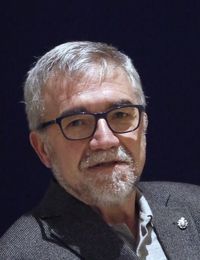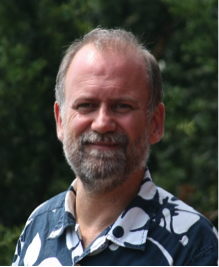Keynote Speakers
Mateo Valero
Barcelona Supercomputing Center

From Classical to Runtime Aware Architectures
Abstract:
In the last years the traditional ways to keep the increase of hardware performance to the rate predicted by the Moore's Law vanished. When uni-cores were the norm, hardware design was decoupled from the software stack thanks to a well defined Instruction Set Architecture (ISA). This simple interface allowed developing applications without worrying too much about the underlying hardware, while computer architects proposed techniques to aggressively exploit Instruction-Level Parallelism (ILP) in superscalar processors. Current multi-cores are designed as simple symmetric multiprocessors on a chip. While these designs are able to compensate the clock frequency stagnation, they face multiple problems in terms of power consumption, programmability, resilience or memory. The solution is to give more responsibility to the runtime system and to let it tightly collaborate with the hardware. The runtime has to drive the design of future multi-cores architectures.
In this talk, we introduce an approach towards a Runtime-Aware Architecture (RAA), a massively parallel architecture designed from the runtime's perspective. RAA aims at supporting the activity the parallel runtime system in three ways: First, to enable fine-grain tasking and support the opportunities it offers; second, to improve the performance of the memory subsystem by exposing hybrid hierarchies to the runtime system and, third, to improve performance by using vector units. During the talk, we will give a general overview of the problems RAA aims to solve and provide some examples of hardware components supporting the activity of the runtime system in the context of multi-core chips.
Bio:
Mateo Valero obtained his Telecommunication Engineering Degree from the Technical University of Madrid (UPM) in 1974 and his Ph.D. in Telecommunications from the Technical University of Catalonia (UPC) in 1980. He is a professor in the Computer Architecture Department at UPC, in Barcelona. His research interests focuses on high performance architectures. He has published approximately 700 papers, has served in the organization of more than 300 International Conferences and he has given more than 500 invited talks. He is the director of the Barcelona Supercomputing Centre, the National Centre of Supercomputing in Spain.
Dr. Valero has been honoured with several awards. Among them, the Eckert-Mauchly Award 2007 by the IEEE and ACM; Seymour Cray Award 2015 by IEEE; Charles Babbage 2017 by IEEE; Harry Goode Award 2009 by IEEE: ACM Distinguished Service Award 2012; Euro-Par Achievement Award 2015; the Spanish National Julio Rey Pastor award, in recognition of research in Mathematics; the Spanish National Award “Leonardo Torres Quevedo” that recognizes research in engineering; the “King Jaime I” in basic research given by Generalitat Valenciana; the Research Award by the Catalan Foundation for Research and Innovation and the “Aragón Award” 2008 given by the Government of Aragón. "Hall of the Fame" member of the ICT European Program (selected as one of the 25 most influents European researchers in IT during the period 1983-2008; Honoured with Creu de Sant Jordi 2016 by Generalitat de Catalunya. He is member of 5 academies. He is Honorary Doctorate by 9 Universities. He is fellow of IEEE and ACM and is an Intel Distinguished Research Fellow.
Olivier Notebaert
Airbus Defence and Space

On-board software technology trends in space applications
Abstract:
Space systems covers various applications in space transport, orbital infrastructures, science, earth observation, telecommunications and planetary exploration which includes many different types of vehicles and missions, commercial and institutional. On-board digital electronics being submitted to severe constraints in space, with a fast growing demand on software based on-board functions increasing the needs for computing performance and complexity, on-board data processing and software systems technologies becomes one of the major challenges for the Space systems future. The next generations of space systems will implement synergies with other critical transportation domains such as aeronautics, trains and automotive, but also with consumer electronics and the fast growing connected computing and robotics technologies: a new era of opportunities is open for a new deal in space...
Bio:
Olivier Notebaert received a M.Sc. degree in Electronics Engineering in 1984 at the Toulouse Polytechnic Institute (ENSEEIHT) and is today a recognized international expert for spacecraft on-board data processing. With 32 years' experience in embedded digital electronics and software in the space domain working for several AIRBUS sites, Olivier has covered all types of missions in observation, science and telecommunications satellites, launcher (Ariane 5), International Space Station, in-orbit servicing and planetary exploration. Focusing his activity on advanced technology developments for spacecraft on-board electronics and software during the last 15 years, he has initiated and led ambitious AIRBUS R&T programs which have enabled today's disruptive "new space" applications such as the OneWeb constellation project dedicated to global internet coverage. He also promoted and now contributes to the ongoing developments of a next generation of high performance and highly reliable processing devices based on FD-SOI deep sub-micron technology. Mr. Notebaert is leading today the AIRBUS Defence and Space R&T engineering strategy for on-board data processing in space applications and within the AIRBUS expert network, he contributes in defining the AIRBUS Group R&T strategy on future embedded digital processing technologies. In cooperation with the European industry and Space Agencies, he is a major contributor in defining standards and technology harmonisation policies for space avionics, microelectronics and on-board computers. As animator within the French Competitiveness Cluster for Aeronautics, Space and Embedded Systems "Aerospace Valley" grouping more than 840 entities from industry and academia, Mr Notebaert promotes cross-domains technology synergies in aerospace, automotive, medical, factory automation., all facing the IoT revolution in Cyber Physical Systems.
Current position in Airbus Defence and Space (Toulouse, France):
On-board Data Processing Architecture Expert / Research & Technology coordination for Orbital data processing and on-board Software
